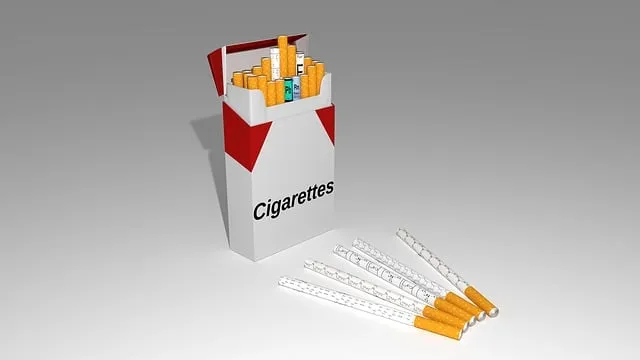Kaiser Adult Addiction Services offers a holistic approach to recovery, recognizing addiction's physical and psychological aspects. Their personalized treatment plans include therapy, support groups, and medication management, focusing on healing and personal growth. Kaiser addresses teen substance abuse through early detection, prevention programs like KEAP, and family support groups. Evidence-based interventions, such as the Kaiser Family Therapy Model, combined with outpatient therapy, make recovery accessible. Community engagement, including partial hospital programs and community-led support groups, enhances care and improves outcomes for individuals with kaiser addiction.
“Unraveling the complex web of kaiser addiction is a crucial step towards building resilient communities. This comprehensive guide delves into the multifaceted issue, offering insights into understanding and preventing substance abuse within the Kaiser framework. From identifying risk factors affecting vulnerable populations to implementing early detection methods, we explore effective strategies.
We highlight evidence-based interventions tailored for at-risk individuals and emphasize the power of community engagement in fostering support systems. By examining these elements, this article aims to empower healthcare professionals and communities to combat kaiser addiction effectively.”
- Understanding Kaiser Addiction: A Comprehensive Overview
- Risk Factors and Vulnerable Populations
- Early Detection and Prevention Strategies
- Evidence-Based Interventions for At-Risk Individuals
- Community Engagement and Support Systems
Understanding Kaiser Addiction: A Comprehensive Overview

Understanding Kaiser Addiction: Unveiling the Complexities
Addiction is a multifaceted and often misunderstood condition, and when it comes to Kaiser addiction, there’s a unique layer of complexity due to the healthcare system’s involvement. Kaiser Adult Addiction Services offers a comprehensive approach to addressing this challenge. It involves a blend of medical expertise and therapeutic interventions tailored to each individual’s needs. The journey towards recovery begins with recognition—acknowledging that there’s an issue is the first step. At Kaiser, behavioral health addiction medicine experts play a pivotal role in diagnosing and creating personalized treatment plans. These plans may include therapy sessions, support groups, and medication management, all designed to combat the physical and psychological aspects of addiction.
The recovery process is not merely about abstinence but also about healing and personal growth. Addiction recovery support groups facilitated by Kaiser provide a safe space for individuals to share their experiences, gain insights from peers, and build a network of support. This holistic approach recognizes that addiction affects not just the individual but also their social fabric, making comprehensive care essential. By combining medical knowledge with empathy, Kaiser aims to empower patients in their fight against addiction, offering hope and a path towards a healthier, more fulfilling life.
Risk Factors and Vulnerable Populations

Addiction is a complex issue with various risk factors that can contribute to its development. Understanding these factors is crucial for addressing kaiser addiction and implementing effective prevention strategies. One significant aspect is identifying vulnerable populations, as certain groups may be more susceptible to substance abuse due to socio-economic, genetic, or environmental influences. For instance, teens experiencing peer pressure or those with co-occurring disorders like anxiety or depression are at higher risk.
Kaiser healthcare, with its comprehensive approach, offers resources tailored to these challenges, including specialized programs for kaiser long-term addiction management and teen substance abuse. By recognizing the unique needs of different demographics, such as adolescents and individuals with co-occurring disorders and kaiser addiction, prevention efforts can be more targeted and successful in promoting a healthier community.
Early Detection and Prevention Strategies

Early detection and prevention are key components in combating kaiser addiction, especially when it comes to teen substance abuse. Kaiser healthcare offers various programs tailored for teenagers to address this growing concern. These initiatives focus on education, awareness, and providing support systems before addiction takes root. By integrating these strategies into their corporate wellness addiction programs, Kaiser aims to foster a healthier environment both within the workplace and the community.
The kaiser employee assistance program (KEAP) plays a pivotal role in early intervention. KEAP provides confidential counseling services and connects individuals struggling with addiction to appropriate resources. Furthermore, support groups for family members affected by their loved ones’ addiction are an essential part of the recovery process. These programs not only help those battling addiction but also educate families on how to prevent and manage substance abuse effectively.
Evidence-Based Interventions for At-Risk Individuals

In addressing kaiser addiction prevention, evidence-based interventions play a pivotal role in supporting at-risk individuals. The kaiser family therapy for addiction model emphasizes personalized treatment plans that cater to unique needs and circumstances. Through comprehensive kaiser addiction screening and assessment, risk factors can be accurately identified, enabling tailored strategies to mitigate potential substance abuse issues. This proactive approach ensures that individuals receive the right support at the right time, potentially averting serious consequences associated with untreated addiction.
One effective method is kaiser outpatient addiction therapy, which offers structured sessions outside of inpatient settings. Kaiser insurance addiction benefits, when leveraged appropriately, can make this form of therapy more accessible and affordable for those in need. By combining expert counseling with a range of evidence-based techniques, such as cognitive behavioral therapy, patients engaged in kaiser outpatient addiction therapy gain valuable tools to manage cravings, develop coping mechanisms, and maintain long-term recovery.
Community Engagement and Support Systems

Community engagement plays a pivotal role in kaiser addiction prevention. By fostering strong connections within support systems, individuals battling addiction can receive the care and understanding they need. Local communities often offer addiction recovery support groups led by professionals or peers who have successfully overcome similar challenges. These groups provide a safe space for sharing experiences, offering encouragement, and learning coping strategies from those who relate to their struggles.
The kaiser partial hospital addiction program is one such initiative that leverages community engagement. By combining outpatient care with community-based support, this program aims to help individuals navigate the path to recovery. Additionally, addiction treatment programs offered by kaiser leverage these established support networks to ensure continuity of care and enhance long-term outcomes for those in recovery.
Kaiser addiction, a complex issue, demands a multi-faceted approach. By understanding its nuances, identifying risk factors, and implementing early detection strategies, we can effectively prevent and manage this challenge. Evidence-based interventions tailored to at-risk individuals, coupled with robust community engagement and support systems, play a pivotal role in breaking the cycle of addiction. Embracing these comprehensive strategies is crucial in fostering healthier communities and promoting well-being among all Kaiser members.






